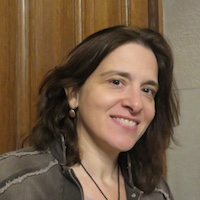
In my early career as a psychologist in academia, I valued being productive to the exclusion of other dimensions of myself.
Outside of work, my relationships, play, and spiritual practice were of central importance to me. Yet I, and others around me, would have benefited if I had risked bringing more of myself into my work life. I say “risk” because in competitive environments, productivity is reinforced, often at the expense of an individual’s uniqueness.
What I did not understand then, because I was too busy striving, was the importance of wise effort.
Wise effort requires understanding when action is needed, as well as when it is not. And, most importantly, wise effort includes creating time for non-doing.
Non-doing is an engaged restraint from action or effort. It is non-striving, a form of stillness and quiet. But non-doing is not inaction, nor is it disengagement, zoning out, becoming distracted, or wasting time.
Because non-doing is foreign to many of us, it can feel inactive—but it is anything but. Cultivating non-doing is an important skill that creates internal spaciousness. The actions that arise from this place are infused with greater ease and clarity.
There is a concept in Taoism called wu wei, which describes a paradox of “action without action” or “effortless doing.” It is a cultivated yet natural state of non-striving. In this state, you let go and stop trying to achieve. It’s not that you don’t set goals or take purposeful action, but you first take yourself out of the central role in your life in order to more fully understand the nature of things around you. You understand how to best act not by rushing to make sense out of things or by placing your stamp on them, but by simply taking them in.
So what does non-doing look like? And how can we begin to create an intentional practice in non-doing?
A non-doing practice begins by incorporating a pause or an activity that brings stillness and quiet into your day. Some activities promote non-striving more than others. Think about what activities lend themselves to your being engaged but relaxed.
Can you make time for these sorts of activities? Can you think of ways during your work day where you can adopt the spirit of wu wei, if only for a few minutes? These pauses throughout your day can transform your relationship to work.
In my psychotherapy practice, I have built in more frequent breaks between clients—not always, but sometimes. And when I practice pausing more often, I feel renewed. Even if I only do this between half of my sessions, it makes a difference in my experience—deepening my quality of presence throughout the day. During these breaks, I consciously try to gaze out the window or close my eyes. I intentionally refrain from looking at texts or emails. Just five to 10 minutes is often enough time to center my energy.
What would I tell my younger self, the one who was constantly striving? I would tell her to keep up the good work. Then, I would invite her to allow herself to pause more often.
I would tell her that she is enough right now and should know that she will accomplish things without always having to try so hard. I would invite her to give herself permission to relax a little bit more. And I would encourage her to discover ways to bring the quieter, more contemplative aspects of herself to her work.
Allowing ourselves time to pause, to be still, especially in places that require sustained focus and effort, helps us to be a more intentional and effective actor. Discover ways to infuse your work hours with the spirit of wu wei. Share these experiences with others. Some examples might include: making eye contact more often; asking your colleagues what’s important to them outside of work; or inviting others to meditate with you for 10 minutes.
These moments of non-doing enable us to bring our most authentic self to all we do, including our work.
~
Relephant:
Buddhism vs. Speed: Busyness is Laziness, by Dr. Reggie Ray.
Making Friends with Stillness: Through Formal & Informal Meditation.
~
Author: Lisa Kentgen, Ph.D.
Image: Daniel Lamb/Flickr
Editor: Nicole Cameron
Copy Editor: Yoli Ramazzina











Read 13 comments and reply